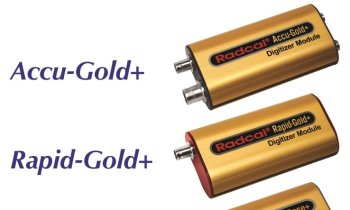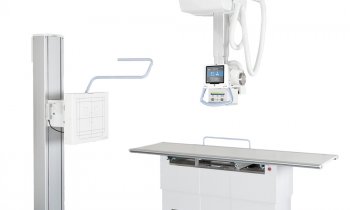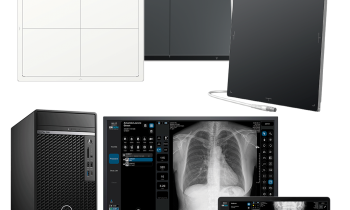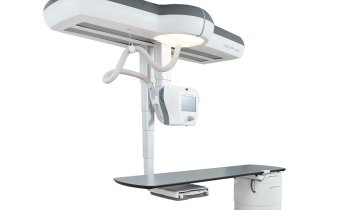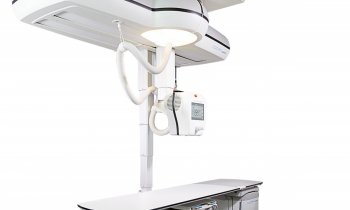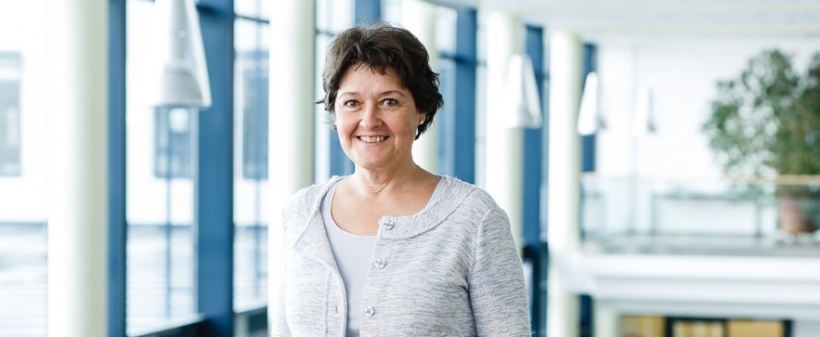
Article • Education
ECR significantly expands radiographers program
The job title radiographer has a firm place in many European and non-European countries. The academic training reflects the complex range of responsibilities the role entails.
Report: Sylvia Schulz
Michaela Rosenblattl M.Ed, who heads the radiology degree course program at the University of Applied Sciences in Wiener Neustadt reports on the Austrian Situation. As president of the Austrian Society of Radiological Technologists (rtaustria), a founder member of the European Federation of Radiographer Societies (EFRS), also presents a European perspective.
Since 1960, Austrian training for this profession used to require students to have passed their Matura (equivalent to A-levels), Rosenblattl explains. In those days, training centres were mostly affiliated to hospitals. The Bologna Process, a pan-European harmonisation of degree courses and degrees and trans-national academic reform, aiming to achieve international mobility for students, accelerated further developments. In 2004 the title ‘radiographer’ was officially introduced (in Austria) and, in 2005, training was integrated into the universities for applied sciences. The degree course is now available at seven of these universities across Austria.
Radiology department assistants can perform less challenging radiological tasks, requiring fewer qualifications. They work closely with radiographers and are only allowed to carry out certain procedures, such as bone density measurements and mammograms. Radiographers are on a level with doctors. ‘Doctors can avail themselves of our competencies when required,’ Rosenblattl says. The Law on Higher Medical-Technical Services (MTD) governs the profession; doctors are regulated by Medical Law.
I don’t understand why things should be so difficult in Germany of all countries
Michaela Rosenblattl
Accordingly, radiographers in Austria have extensive competencies. Since 2004 they have been entitled to administer contrast media and, since 2012 they have also been able to administer radiopharmaceuticals. ‘Dosage calculation has always been part of our duties. The application is obviously always carried out in agreement with doctors, with the degree of risk governing the intensity of this cooperation. It is important that doctors are available in case of any incidents,’ explains Rosenblattl.
Training for radiographers is academically based in almost all European countries, Rosenblattl points out. Only Germany and Spain lag behind, with the latter now making amends. ‘I don’t understand why things should be so difficult in Germany of all countries,’ she observes. In many non-European countries, including Australia, training is also organised on an academic level. ‘This is even the case in Nigeria, with an entire institute being managed by a radiographer.’
The academic training is demanding because the course includes physics, technology and IT. But even those without A-levels can enrol, as long as they pass the additional examinations required. ‘The permeability of our education system is quite high and we put this principle into practice,’ Rosenblattl explains. Training also continues to be important once graduates have completed the course and work in the profession, because radiology is a very innovative field, both from a medical and a technological perspective. ‘Our organisation also offers its own programs to promote further training.’ More importantly, an exchange across national borders is welcome. As mentioned, Rtaustria is a founder member of the European Federation of Radiographer Societies (EFRS). The EFRS represents more than 100,000 radiographers in member organisations across Europe and supports the ECR, which hosts the Educational Wing Annual Meeting with an integrated program for students of radiography. ‘The ECR is important for exchange amongst our members,’ Rosenblattl points out. ‘We are pleased that the program for radiographers has been significantly expanded this year.’
Profile:
Michaela Rosenblattl M.Ed heads the radiology degree course program at the University of Applied Sciences in Wiener Neustadt, Vienna, and is president of the Austrian Society of Radiological Technologists (rtaustria).
CONGRESS INFORMATIONS:
Austrian Congress for Radiologic Technology
Advanced Training by rtAustria
21.-22.4.2017 in Salzburg/Austria
www.radiologietechnologen.at/kongress2017
02.03.2017





